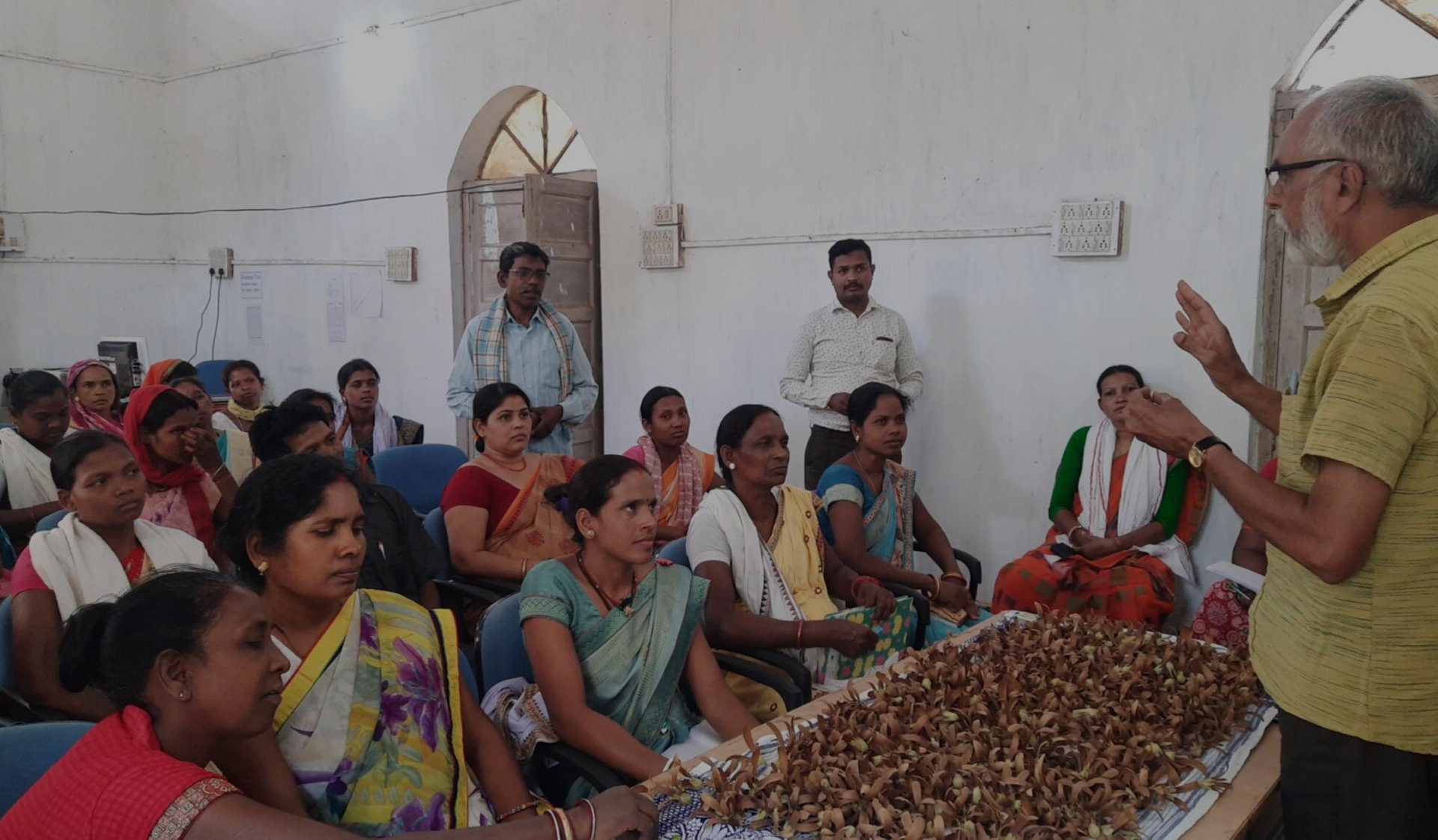
Strengthening Women-Led Enterprises: Sal Seed-Collection Training in Simdega, Jharkhand
13.05.23
From 10–12 May 2023, the Indian School of Business (ISB), Jharkhand State Livelihood Promotion Society (JSLPS), and AAK India Private Limited (AAKIPL) jointly organised three training sessions on sal seed collection in Kolebira, Bano, and Jaldega blocks of Simdega, Jharkhand. These sessions aimed to equip approximately 100 women from self-help groups (SHGs) and producer groups (PGs) with the essential skills required for sal seed collection. AAKIPL representatives shared tried-and-tested best practices and valuable insights gleaned from their work in other regions.
About the Event
The trainers commended the existing practices of local sal seed gatherers but identified several vital hygiene measures to ensure both seed quality and long-term sustainability:
No forest fires: Fires should not be set in the forest during the collection process.
Selective picking: Only mature sal seeds should be collected by hand; smaller or immature seeds should be left undisturbed.
Elimination of child labour: Child labour should be strictly prohibited in all collection activities.
Flatbed preparation: Collected seeds should be arranged in a single-layer flatbed on a dry, open space in the homestead and not be heaped.
Controlled burning: Low-intensity fires should be used to char only the wings and outer layer of the seed coat; over-burning or blackening of seeds should be avoided.
Proper seed breaking: Sal seeds should be gently broken into four parts using light stones and not be ground excessively.
Sun drying and moisture prevention: Seeds should be sun-dried thoroughly and kept free from moisture.
Adequate storage: Seeds should be stored in a cool, dry place to prevent infestation.
Optimal packing method: Polypropylene (PP) bags should be used to pack seeds to ensure proper storage and transportation.
No adulteration: Strict measures should be taken to prevent adulteration with stones, pebbles, dirt, and other foreign substances.
